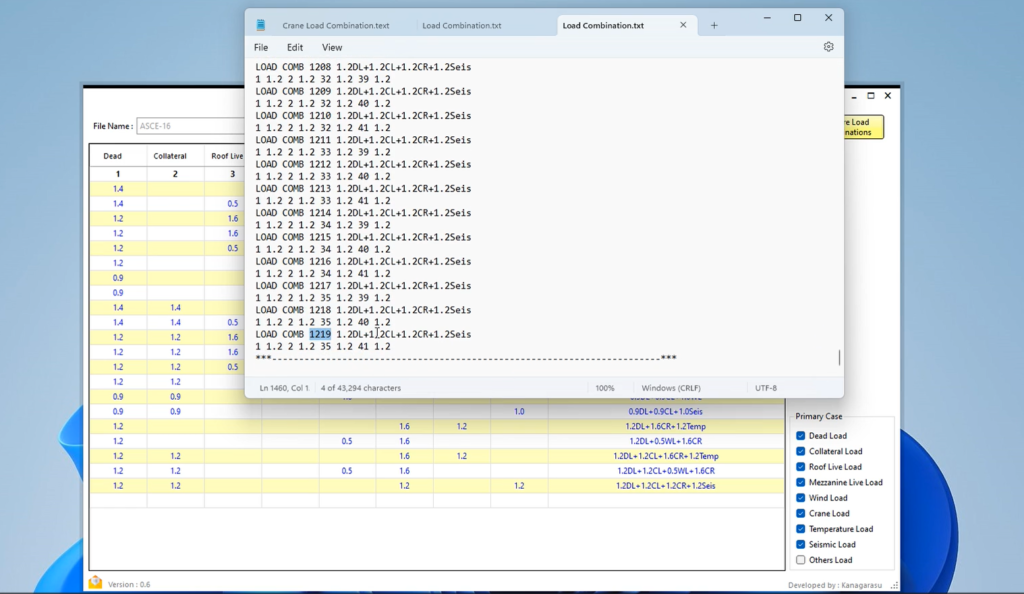Creating crane load cases for structural analysis can be a time-consuming and error-prone task. Manually calculating and entering these cases can lead to inaccuracies and delays in the design process. To streamline this process, we’ve developed a tool that automatically generates crane load cases based on user-defined parameters.
How it Works
- Choose the Number of Aisles: Select the number of aisles within the rigid frame cross-section of your structure.
- Set Crane Load Combination: Specify the starting combination number for the crane load combinations.
- Enter Crane Data: Input the necessary crane data into the provided text boxes. This includes information such as crane capacity, boom length, and trolley movement.
- Reference the STAAD Model: Identify the node and beam IDs in your STAAD model that correspond to the crane positions.
- Enter All Crane Data: Input the data for each crane, ensuring accuracy and consistency.
- Create Crane Cases: Click the “Create” button to initiate the automatic generation of crane load cases.
- Copy to STAAD Model: Copy the generated crane load cases directly into your STAAD model for further analysis.
Benefits
- Efficiency: Significantly reduces the time required to create crane load cases.
- Accuracy: Minimizes the risk of human error by automating the process.
- Streamlined Workflow: Integrates seamlessly with your existing design workflow.
- Flexibility: Allows for customization based on specific project requirements.
Conclusion
By automating the creation of crane load cases, we can improve efficiency, accuracy, and overall project delivery. This tool is a valuable asset for structural engineers and designers seeking to streamline their workflows and enhance the quality of their work.

